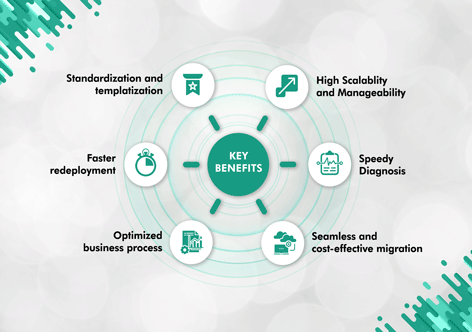As corporate databases grow, many people try to access data from numerous locations, handling such big data becomes an increasingly difficult task.
Today, data managers need a system that is resourceful to meet the demands of all of their employees while maintaining data security. Many businesses find solutions to these data problems using the cloud.
Use the cloud to solve multiple business problems that call for the understanding of cloud-based data management, staying updated on best practices, and learning from other successful companies.
What is cloud data management?
Cloud data management is a method of storing a business’s data on an external server which is usually owned and monitored by a provider who specializes in cloud hosting data.
Cloud data management offers an automatic preset backup plan, professional support, and easy access from anywhere.
Check out the top benefits of cloud-based data management.
- Security – Cloud data management is more secure than on-premises solutions. In fact, 94% of cloud users speak of security developments. Firstly, because managing data in the cloud lowers the risk of data loss due to hardware failure or device loss. Secondly, companies specializing in cloud hosting and data management own more enhanced and cutting-edge security measures and practices than companies with local data.
- Scalability and savings – Cloud data management enables users to tone up and down their services as needed. If necessary, more memory or computing power can be added. Businesses can walk away after a large project is completed, so they don’t have to pay for services they don’t need.
- Governed access: With enhanced security, governed data access becomes more secure. Cloud storage means your team members can access the data they need anywhere, anytime. Such access provides a more combined work culture, as the staffs work together on a data set, simply exchange knowledge, and much more.
- Automated Backups and Disaster Recovery – The cloud storage provider can manage and automate data backups so the business can emphasize other things while having peace of mind that their data is safe. An up-to-date backup also speeds up the disaster recovery process after an emergency.
- Upgraded data quality: A well-managed and integrated cloud data-based management solution can help businesses break down data storage and generate a single source of truth for each data point. This way, the data stays clean, consistent, and up-to-date.
- Automated Updates – Cloud data management providers strive to deliver the best services and features. When applications need to be updated, cloud providers perform these updates automatically. This means your team doesn’t have to stop working and have to wait for IT to update all systems.
- Sustainability: For companies and brands that are committed to reducing their ecological impact, cloud data management is an important step in this process. It allows companies to reduce the carbon footprint of their facilities and expand telecommuting options to their teams.
Cloud-based data management is changing the way companies think about data. Cloud-based data solutions provide more accessible and convenient services at affordable rates.









